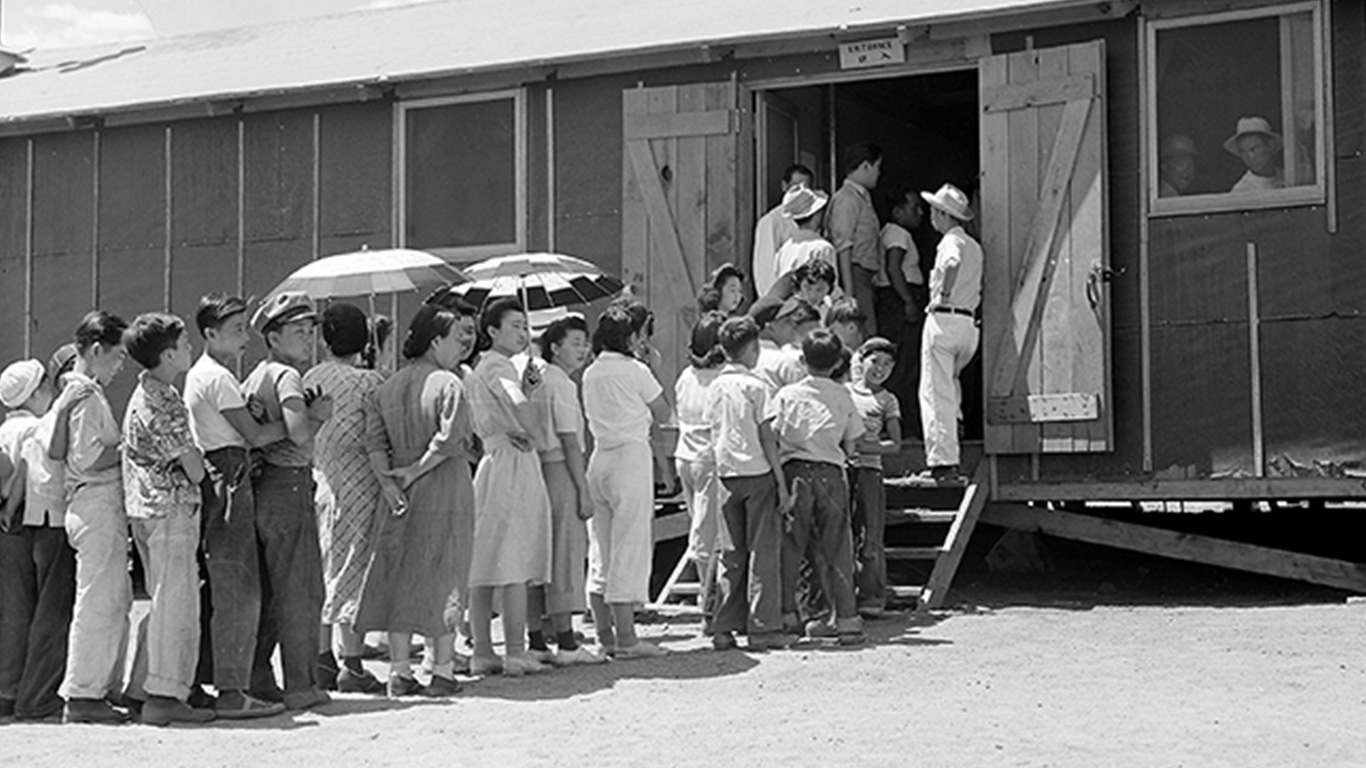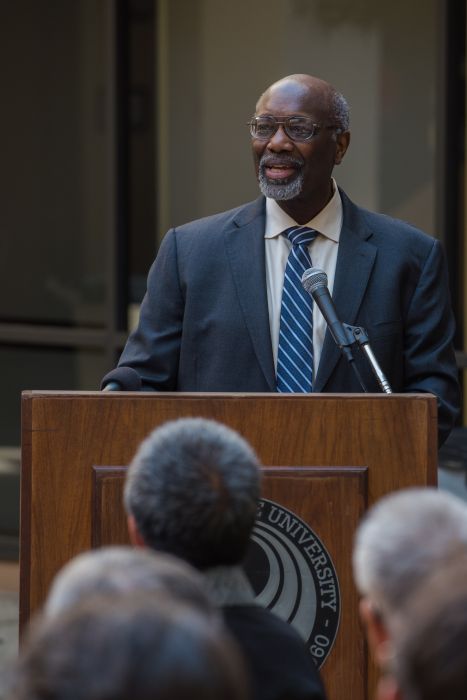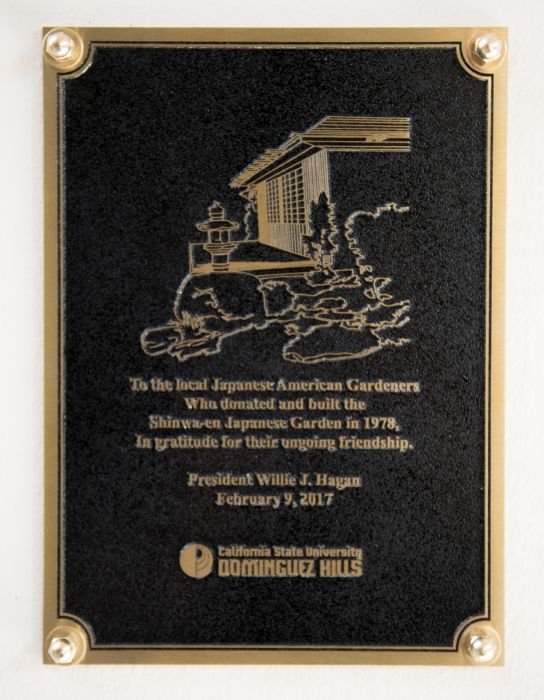
– Photo courtesy of the National Archives and Records Administration

Good afternoon and thank you for being here. We are here today, 75 years after the fact, to remember Presidential Executive Order 9066, issued on February 19, 1942 that led to the mass incarceration of Japanese Americans. I know it is not lost on any of us that whenever people gather for a day of remembrance it is often because something immoral an injustice, occurred in the past.
These remarks were given at the re-dedication of the university’s Shinwa-en Japanese Garden as part of a day-long series of activities that included an academic symposium and opening reception of an archives exhibition related the incarceration of Japanese Americans during World War II.
Remembering is important. However, remembering is not enough, because it is not just about the memory; it’s about the lessons we have learned or should have learned from what happened. We honor those best who were dishonored by Executive Order 9066 by doing our best to make sure it never happens again. By staying vigilant.
What we remember requires that we also act. That we act against injustice in its infancy before it takes full hold. Whether that injustice is perpetuated by an individual, a group or a government. Our voices may not always be listened to, but our voices must always be raised against what is wrong against what is inhumane. I say this because 1942 and 2017 provide remarkable symmetry and commentary on the power of presidential executive orders and the need to thoroughly think them through when they can have such a profound and long lasting impact on the lives of so many.
 On this occasion we gather here to remember, and importantly we gather also to rededicate our Japanese Garden. This beautiful garden, which graces our campus is the fruit of the artistic sensibilities, and donated labor, of Japanese Americans in our community who spent time in Tule Lake, in Manzanar, in Heart Mountain, and other so-called relocation camps. We offer our thanks for their gift. We also offer our solidarity, and our own rededication; with this ceremony with the symposium that follows today and with the formal opening of our archives exhibition later this afternoon.
On this occasion we gather here to remember, and importantly we gather also to rededicate our Japanese Garden. This beautiful garden, which graces our campus is the fruit of the artistic sensibilities, and donated labor, of Japanese Americans in our community who spent time in Tule Lake, in Manzanar, in Heart Mountain, and other so-called relocation camps. We offer our thanks for their gift. We also offer our solidarity, and our own rededication; with this ceremony with the symposium that follows today and with the formal opening of our archives exhibition later this afternoon.
Some 29 years ago, in an Act of Congress signed into law by President Ronald Reagan, this country formally declared that government actions to incarcerate Japanese Americans in 1942 were based on “race prejudice, war hysteria, and a failure of political leadership.” As a university we embrace the high purpose of combating race prejudice, and where appropriate, combating war hysteria and political leadership is a participation activity, which we here at Dominguez Hills are called upon to engage.
Let us rededicate ourselves to the proposition that Americans of all national origins, cultural endowments, and of all religious persuasions, contribute to the strength, success, and moral standing of our nation. Let us rededicate ourselves to the proposition that when the times demand it – and they always demand it – this university must contribute to leadership animated by high purpose and strong moral grounding, in this community, this state, this nation and this world. And as we remember the wrongs done in 1942 and later, let us rededicate ourselves to the proposition that never again must authorities come for Americans or anyone who is thought to be of the wrong heritage, the wrong color, the wrong religion or the wrong culture. We are all one people.